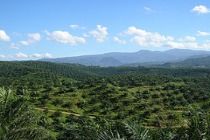Indonesia’s GAR swears by ‘revolutionary’ conservation standards
Golden Agri-Resources Limited (GAR), the world’s second largest palm oil producer and Indonesia’s largest, has agreed to new standards today that would protect rainforests.

.jpg) Golden Agri-Resources Limited (GAR), the world’s second largest palm oil producer and Indonesia’s largest, has agreed to new standards today that would protect rainforests.
Golden Agri-Resources Limited (GAR), the world’s second largest palm oil producer and Indonesia’s largest, has agreed to new standards today that would protect rainforests.
The agreement was made in partnership with The Forest Trust (TFT), a non-profit that facilitates corporate responsibility. It includes a “Forest Conservation Policy” and measures preventing GAR from developing plantations in areas where large amounts of carbon are locked up, such as peat-lands and carbon-rich areas.
This development will expand on the existing standards set out by the Roundtable on Sustainable Palm Oil.
GAR and TFT are aiming to conserve valuable ecosystems but keep the industry profitable.
“As a leading player in the palm oil industry, we are committed to playing our role in conserving Indonesia's forests and look forward to working with all stakeholders including the Government of Indonesia, other key players in the palm oil industry, NGOs and the local communities, to find the common ground for sustainable palm oil production,” said Franky Wijaya, Chairman and CEO, GAR.
Given that palm oil is the mainstay of the Indonesian economy, providing significant jobs and income, this agreement is a “revolutionary moment” in forest conservation, said Scott Poynton, Executive Director, TFT.
“It’s about going to the root causes of deforestation. We have shown that the destruction of forests is anchored deeply in the supply chains of the products we consume in industrialised nations and we are showing we can do something about that,” Poynton said.
With more than 40 million tons of palm oil produced each year, it is becoming ever more common in many commercial and consumer products.
As the leading palm oil producer, Indonesia hopes this agreement will encourage other companies to follow suit.
“This initiative is an example to find concrete solutions and a model for resource-based sectors which is very key to Indonesia's sustainable development. We are supportive of this 'lead by example' partnership that would encourage all players to participate in this process, at this stage and beyond," said Mahendra Siregar, Indonesia’s Vice Minister of Trade.
As well as ensuring the security of carbon-rich areas, the policy will protect areas that are valuable in terms of biodiversity and environmental preservation. Besides, it will ensure respect for indigenous and local communities.
Environmental groups’ concerns whether or not the new standards will be adhered to, are being addressed by TFT.
According to TFT, it plans to “work closely with GAR and with other stakeholders, including Greenpeace, to ensure that the commitments made by the company will be implemented.”
Image: a_rabin | Flickr
